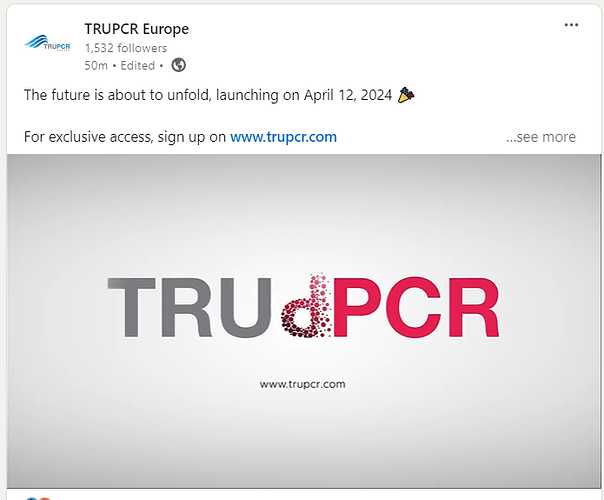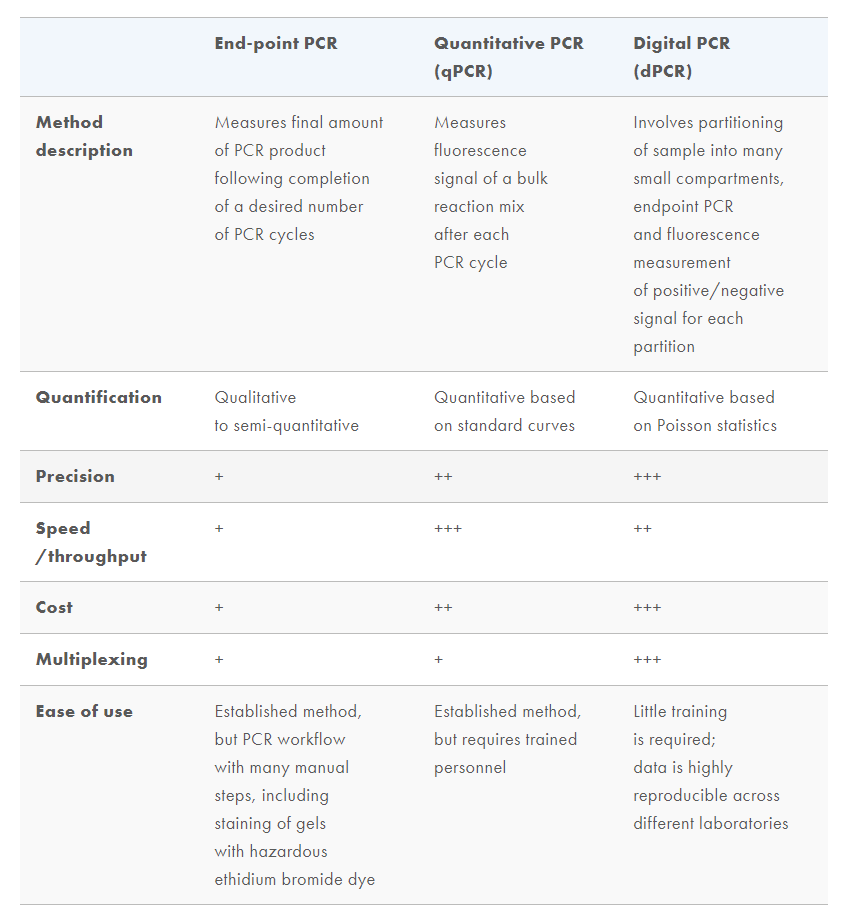Looks like 3B is launching a new line of products – dPCR
Choosing dPCR vs qPCR – Explore the benefits and see if it’s right for your research goals
When comparing dPCR vs qPCR technologies, the key difference is precision power. While both offer highly sensitive and reliable nucleic acid detection and quantification, the key difference between the two technologies can be best described using an analog versus digital radio analogy, says Dr. Jim Huggett, Principal Scientist, National Measurement Laboratory. “With an analog radio, the dial must first be fine-tuned to get the desired station with the least interference. Still, the quality depends on reception and the signal is subject to interference from static. This is qPCR. It is reliable but requires optimization to get a good result, and even then, you must contend with background noise. With digital radio, you simply call up the station and it is either there, with a clear signal, or not. The latter is like dPCR, which provides precise, binary results. It literally counts the presence or absence of DNA molecules. The clarity of results combined with a low error rate makes for an incredibly high level of precision. Digital PCR is well-suited to measure smaller quantitative differences.”
| Subscribe To Our Free Newsletter |



